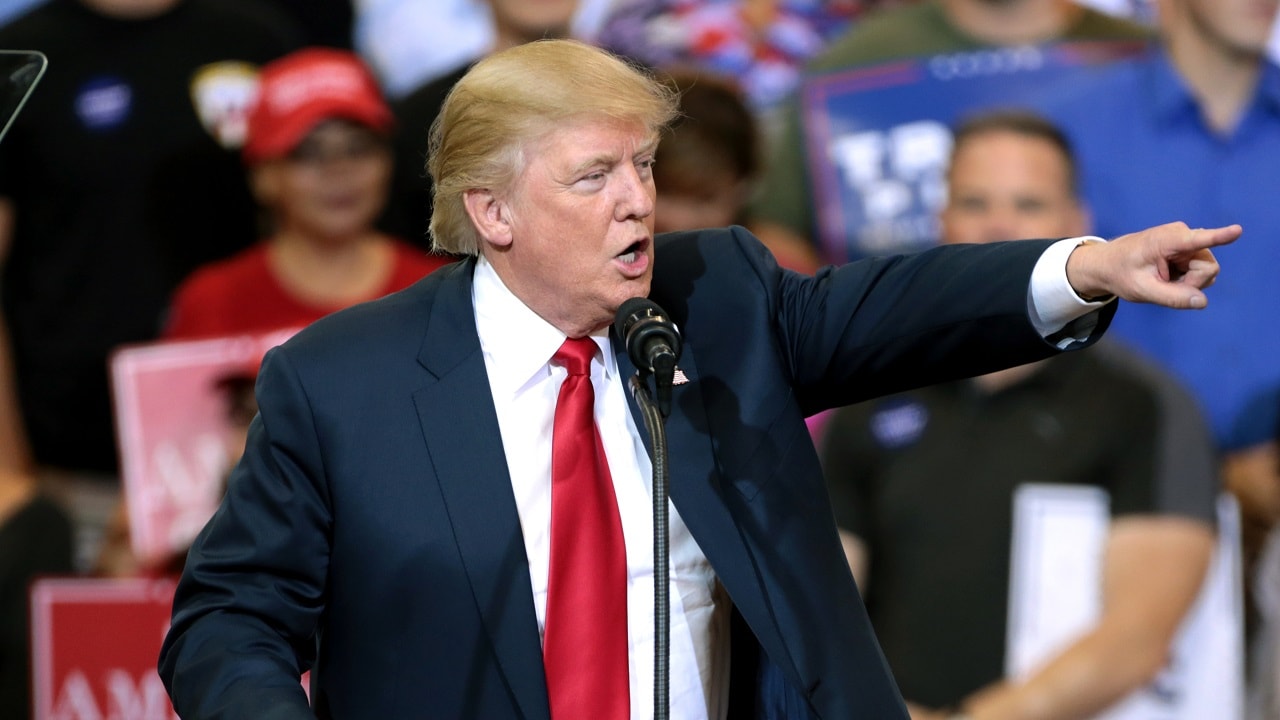The New York Times is asking whether Donald Trump has an advantage over Joe Biden in the battleground states that will decide the Electoral College.
“It’s a reasonable question,” The New York Times reported. “In his first two presidential campaigns, Mr. Trump fared far better in the battleground states than he did nationwide, allowing him to win the presidency while losing the national vote in 2016 and nearly doing it again in 2020. But there’s a case that his Electoral College advantage has faded.”
Here’s the case – it relies on a fascinating phenomenon: the fact that Democrats are hemorrhaging nonwhite voter support.
Electoral College advantage fading for Trump?
As The Times reasons, during the 2022 midterms, Democrats performed equally well in battleground states and nationwide. Now, in polls leading up to the 2024 election, Biden is shown to be polling as successfully in battleground states as nationwide – with numbers that echo the 2022 midterm. A good sign for Biden.
“The patterns in recent polling and election results are consistent with the trends in national surveys, which suggests that the demographic foundations of Mr. Trump’s Electoral College advantage might be fading,” The New York Times reported. “He’s faring unusually well among nonwhite voters, who represent a larger share of the electorate in noncompetitive than competitive states. As a consequence, Mr. Trump’s gains have probably done more to improve his standing in the national vote than in relatively white Northern states likeliest to decide the presidency, like Pennsylvania and Wisconsin.”
Democrats losing nonwhite support
Let’s unpack that for a moment. The part where Trump is gaining support amongst nonwhite voters. The trend is pretty remarkable when you consider the context of Democratic behavior and strategy. The irony is rich. First, is the smug contentment with which Democrats rested, knowing that they were dominant in the ever-growing nonwhite constituencies.
Democrats watched with glee as nonwhite voters became a larger and larger percentage of the overall voting bloc, thinking that nonwhite voters would deliver election victories to the Democrats in perpetuity. Second, is the lip service with which Democrats have been paying to nonwhite voters, especially in the last few years. I’m referring to “woke” rhetoric (and occasionally policy).
Equity and affirmative action and defund the police and Latinx. Democrats employed this woke rhetoric, again smugly, thinking that in doing so they would lock in nonwhite support. The idea appears to be backfiring.
As the woke stuff increases, nonwhite support for the Democratic Party decreases. Is the inverse correlation related? That would be hard for me to prove without conducting some immersive polling, but my instinct says yes. Nonwhite populations don’t like the woke stuff. I have a few thoughts on why that might be.
One, the woke stuff conflates the individual with a group based on an isolated and immutable characteristic, i.e., that person is Hispanic, or that person is gay. I suspect the average person prefers to be considered from a broader perspective that incorporates not just their racial or gender or sexual identity but also their personality and socio-economic background and hobbies and family, etc.
Second, the woke stuff presumes that the individual is powerless, lost in a riptide of systemic oppression. Many people believe that they do have agency over their lives and their decisions and what happens to them.
Adhering to wokeness is an implicit deferral to a fatalism based on their (see above) isolated and immutable characteristic (i.e., I will inevitably suffer X because I belong to Y group).
Many people refuse such defeatist thinking, instead holding onto the idea that they have a measure of power that they can exert over their individual outcome.
Harrison Kass is the Senior Editor and opinion writer at 19FortyFive. An attorney, pilot, guitarist, and minor pro hockey player, Harrison joined the US Air Force as a Pilot Trainee but was medically discharged. Harrison holds a BA from Lake Forest College, a JD from the University of Oregon, and an MA from New York University. Harrison listens to Dokken.
From the Vault

